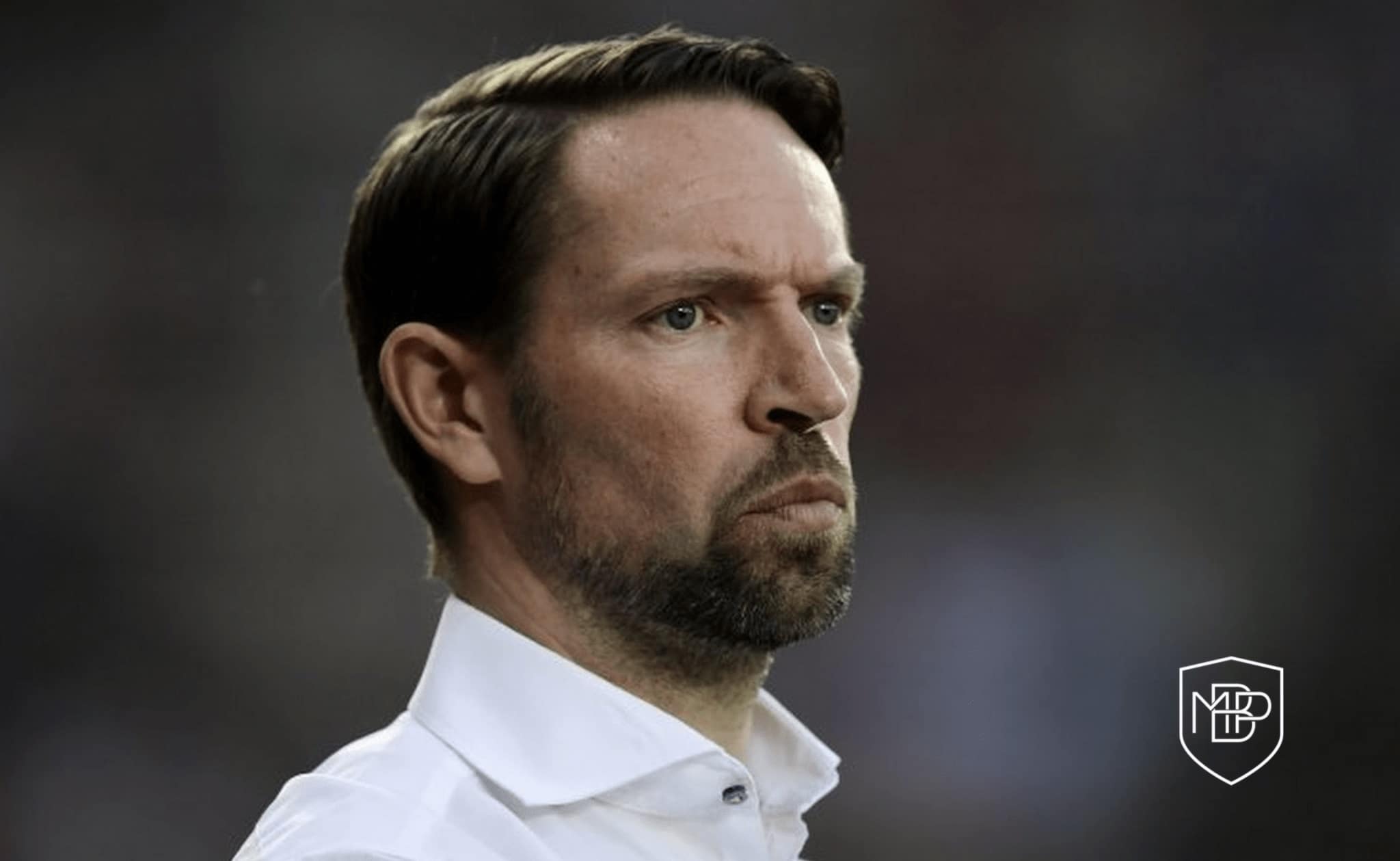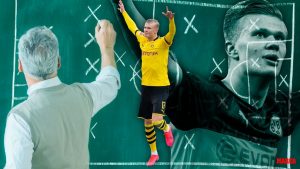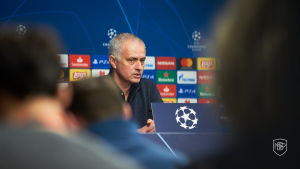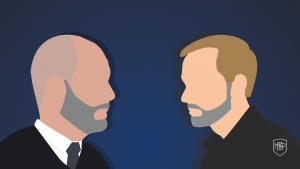As a football player, Sven Vermant started his education in the lower divisions with only 5 years old, until he turned 16. After a couple of years, when he turned 18, he signed his first professional contract with the Belgian first division club KV Mechelen. Only one year was enough for him to make a move to a top club, Club Brugge, and stay for the next 8 seasons.
This experience allowed Sven to raise some interest from international clubs such as the german squad Schalke 04, from the Bundesliga. After four seasons at Gelsenkirchen, where he won one German Cup, he returned to Club Brugge to play until the end of his career.
After ending his career, Sven started to take specialized courses for coaches, combining them with a role as coach for the second team at Club Brugge. After that experience, he started as a Sports Director under the new (and current) president for the next 1.5 years. Then he finished the Pro License and shortly after he rejoined the academy of Club Brugge to take on the consecutive roles of Head Coach for U10, U17 and U21. During the period as U21 coach he had the opportunity to take over the team of Waasland-Beveren for 6 months, a first division team in Belgium.
We wanted to talk with Sven to learn about his personal experience, as a player, coach and sports director. As he explained to us, Belgian Football has progressed enormously in the quality of developing top class players over the last 10 or even 20 years: “With this development comes of course also the advancement of academies in a small country like Belgium. I see it as a challenge nowadays to further cultivate and promote Belgian Coaches to the highest level of World Football”, he said. Clearly, he has a lot to share:
What are the main things that you take away from your career as a player?
The main parts I took with me were how to build a team and how to prepare it to become successful. I would divide it into two parts:
The first part is the goalsetting that is needed (long-term and short-term) to be able to keep performing during a season, as well as the continuous success over a longer period of time. Staying strong in good periods but, and even more so becoming strong again in more difficult ones. This, of course, requires great knowledge and experience of team management as well as individual player development. Making the individuals better to enlarge their impact within the team and its performance.
Secondly, the contents and context of planning and programming during a season with all the different coaches at the highest level was also a huge learning opportunity. Integrating football, physical, medical and mental topics within the philosophy of the different coaches.
Who were the coaches that had the biggest influences on you as a player and now as a professional coach?
Ralf Rangnick and Huub Stevens where certainly two coaches who brought a totally different approach to the coaching of players and a team. One being the more ‘tactical’-one and the other more using emotion. However, both were very successful and impacted me hugely.
What is the reason you have been doing several roles within football? Sports Director, U10, U17 coach, second team, firs team…Is there a specific reason why?
In football every job can be an opportunity to grow. But in a performance environment, the main focus is short-term success, so most of the times coaches don’t have the time to think about building their own career (matter of time and progression step by step). As I believe in the development and progress of humans in general, also for myself, I need those experiences to become the best I can be. And my motivation remains the same, to help and guide a team of individuals, with all of them having their own personal goals, to become the best and most successful team they can be.
As for the different roles I had, every single coaching role brought me the knowledge and insight of the coaching job as a whole on and off the field. The role of Technical Director provided me the detailed background for organizing the structure of the complete football department to the highest current standards. So the Technical Director provides the structure for the coach to work in.
Education
How important is education for a coach? Is being a former player giving you any advantage?
Further education is for me a key stone in the development as a coach. In periods a coach is not active he can or should look for education of the highest possible level, and custom made, for his proper necessary next steps. In this way you can continue to broaden the knowledge within the coaching job. In my point of view, (former-)players have big advantages in the on-field experiencing of football (context), but they should not forget that they are also preparing for a new job with a big amount of organizational and leadership responsibilities, which is much more than only playing the game.
Where did MBP School of Coaches come in the picture?
In my search for courses that could bring me extra education in the period where I am not active as a coach I came in contact with Thomas (Business manager at MBP), who I knew from my time at Club Brugge.
How would you value your experience in their Individual Fundamentals per Position program?
The course of Individual Fundamentals per Position helps me further in the detailed work I am doing to describe my football philosophy from A to Z. Describing your own complete philosophy starts with general and has to be defined to the smallest detail. This develops you further in structuring and making your model clear towards clubs, players, coaches, staff members, the academy, etc.
Defining your own philosophy includes all the different aspects a coach is dealing with inside the complete organization of the sports department.
- How the culture (club and team aligned) is formed.
- How the scouting department is connected to and educated about the game model.
- How the detailed player profiles are communicated towards the scouting.
- How players are improved, worked with, to increase their value for the team and the club.
How does this program and education in general suits in your future plans?
Following the course of the fundamentals and reworking my complete philosophy in cooperation with MBP (Eric) is preparing me for the next possible step. I have been generating my own game model, from general to the most specific aspects. For example in describing the players profiles I have been using the Individual Fundamentals per Position as basis. From this basis we can describe the way we want to improve players in their position and what are the necessary qualities to perform in the collective as well as an individual. Also the detailed description of my planning and programming of the different contents and the way to implement them into the field. So, it is helping me to be better prepared to take on a new project (to build up a team or an institution).
What are your future objectives?
The short-term focus is to keep bringing the complete philosophy onto paper and meanwhile keep analyzing as much games and players as possible to stay up to date with the current and future developments in clubs and countries.
But what I also love doing is to help other coaches in their own educational pathway. It keeps me focused on reflecting on process and it is a very rewarding feeling to support and direct a person who most of the time doesn’t have the chance to open up himself that much. I find it crucial that a coach can always fall back on support to help or guide them along their pathway, in and outside the organization that they are working for.








